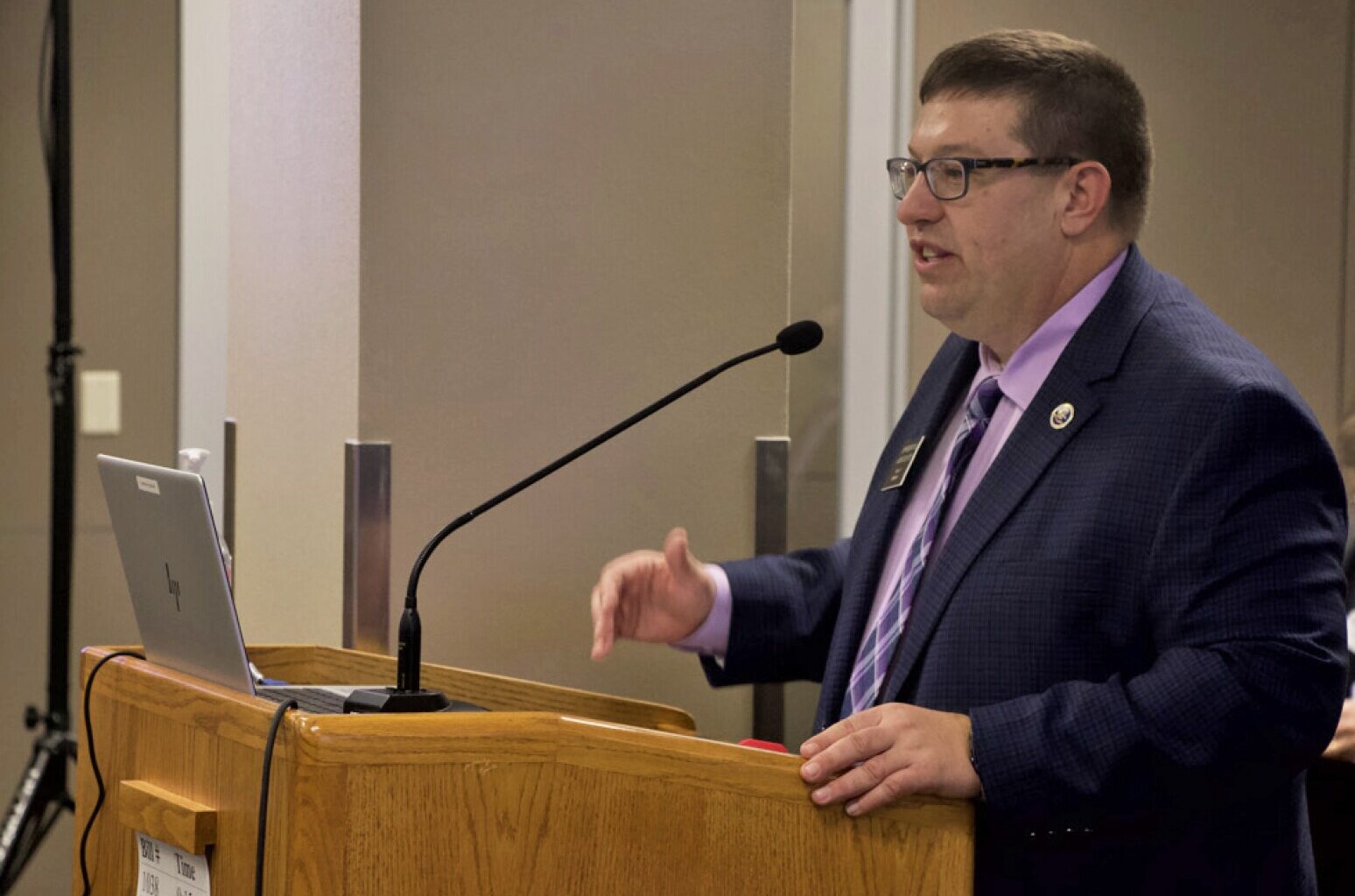MINOT — Between the 2023 and 2025 legislative sessions, state Rep. Jason Dockter, a Republican from Bismarck, was convicted of a misdemeanor crime.
The statute Dockter violated is Section
of the North Dakota Century Code, which states in part that “A person is guilty of a Class A misdemeanor if as a public servant he takes official action which is likely to benefit him as a result of an acquisition of a pecuniary interest in any property, transaction, or enterprise, or of a speculation or wager, which he made, or caused or aided another to make, in contemplation of such official action.”
The criminal complaint filed against Dockter alleged that “As a member of the North Dakota House of Representatives, the defendant did the official action, as defined in N.D.C.C. 12.1-01-01-04(20), of voting on legislative bills appropriating money to pay for property he had acquired a pecuniary interest in, and did so in violation of this section and the rules of the North Dakota Legislature.”
(I was subpoenaed due to
a Plain Talk podcast interview
I did with Dockter in 2022. My subpoena was canceled once the prosecution and the defense agreed on admitting the podcast audio as evidence.)
The pecuniary interest was
for office space struck between Dockter and his business partners and then-Attorney General Wayne Stenehjem’s office. Dockter was a friend and political ally of Stenehjem’s, who has since passed away, and served as the treasurer of his 2016 gubernatorial campaign.
There’s no question that what Dockter did was wrong, but the statute he was charged under is an expansive one, and
somewhat problematic for a part-time legislature
where everyone voting for appropriations has a day job that may or may not benefit from their votes.
Dockter’s conviction was eye-opening for lawmakers, and now legislative leadership — House Majority Leader Mike Lefor and Senate Majority Leader David Hogue, both Republicans — have introduced
which seeks to create immunity from prosecution for lawmakers over alleged conflicts.
The legislation states that any lawmaker who adheres to “rules requiring an individual to disclose a personal or private interest” is “immune from criminal prosecution under the laws of this state for an offense arising from the individual voting on a measure in a legislative committee, the senate, or the house of representatives.”
The bill also states that lawmakers who rely on advice from the state ethics commission in these matters may use that advice as an “affirmative defense” in any resulting criminal proceedings.
Are these good reforms? Do they strike the right balance between protecting a citizen legislature from frivolous prosecution while also ensuring accountability for elected officials who use the powers of their office to feather their nests?
It’s a good start.
This legislation would be stronger if coupled with enhanced disclosure requirements. Every lawmaker should be required to make a thorough accounting of their interests every year, and a link to those disclosures should be included with their legislative bios.
Citizen lawmakers are going to have conflicts of interest. Disclosure is the best way to handle that.

